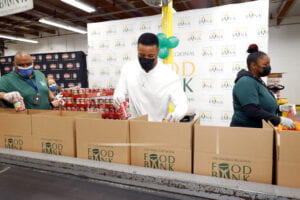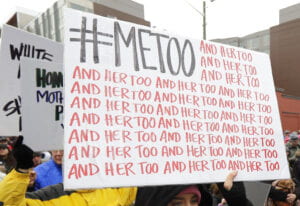Company asks customers to stand with Ukraine
Known for its practical products such CleanMyMac and CleanMyPC, MacPaw is hunkering down in its offices in Kyiv, Ukraine, as the Russian military continues to bombard the city.
“Today we face the horrible, horrible act of Russian aggression,” said Oleksandr Kosovan, CEO of MacPaw in a video message on Sunday. “Russia invaded our country and started to kill our people and bomb our cities. Today, Ukraine is united as ever before.”
When the invasion started over a week ago, MacPaw joined efforts to help Ukraine right away. Aside from donating funds and volunteering on-site, the company provides all media personnel covering the war a free year of CleanMyMac.
The company also provides free access to ClearVPN, a technology that allows users to browse the web from different locations in the world to all Ukrainians. Having ClearVPN gives users a sense of security in browsing the web and allows them access to reliable sources of information as the Russian government embarks on a disinformation campaign online.
In recent days the company moved to work remotely to ensure no disruptions in the support and development of its products.
The offices are in Kyiv, the capital of Ukraine, but the company hosts all of its infrastructure and user data on Amazon Web Services. The cloud service servers are outside the country. Paddle, the payment provider MacPaw works with, operates from the United Kingdom.
“We work hard to make sure that our #Ukraine customers like @MacPaw have the support they need, and that they can continue to communicate and serve their customers,” wrote Werner Vogels, the chief technology officer of Amazon in a tweet. “My heart goes out to them though as I cannot even imagine what they are experiencing.”
MacPaw was founded in 2008 and operated primarily in Kyiv. The company has prepared an assistance program and launched an emergency plan to ensure the safety of its employees in Ukraine. LinkedIn shows the company has over 300 employees, most of them located in Ukraine.
MacPaw’s first and most popular app, CleanMyMac, boasts more than 5 million users and cleans terabytes of junk daily. MacPaw’s active user base exceeds 30 million people worldwide, with every fifth Mac on earth hosting at least one app.
Ukraine is home to several tech companies working to ensure their technology continues, despite disruptions from the invasion.
Other well-known companies include Grammarly, an AI-driven tool that helps people communicate better in writing; Readdle which hosts productivity apps for iPhone, iPad and Mac; and Ajax Systems, a global home security hardware maker.
Ukraine is estimated to have 285,000 IT specialists, according to a 2021 report from the IT Ukraine Association. Despite the aggression by Russia over the last eight years, Ukraine’s IT industry has continued to grow by 36%, from $5 billion to $6.8 billion in export sales.
“I ask all of the international community to stand with Ukraine,” Kosovan said.
He asked the international community for help in providing shelter and food for families crossing the borders into Europe.
“We are not leaving and we are not going to give up our country,” Kosovan said. “Putin will come to an end here. Stay strong. Stay with Ukraine.”








